By John Fernandes on Apr 07, 2025
~ 4 minutes to read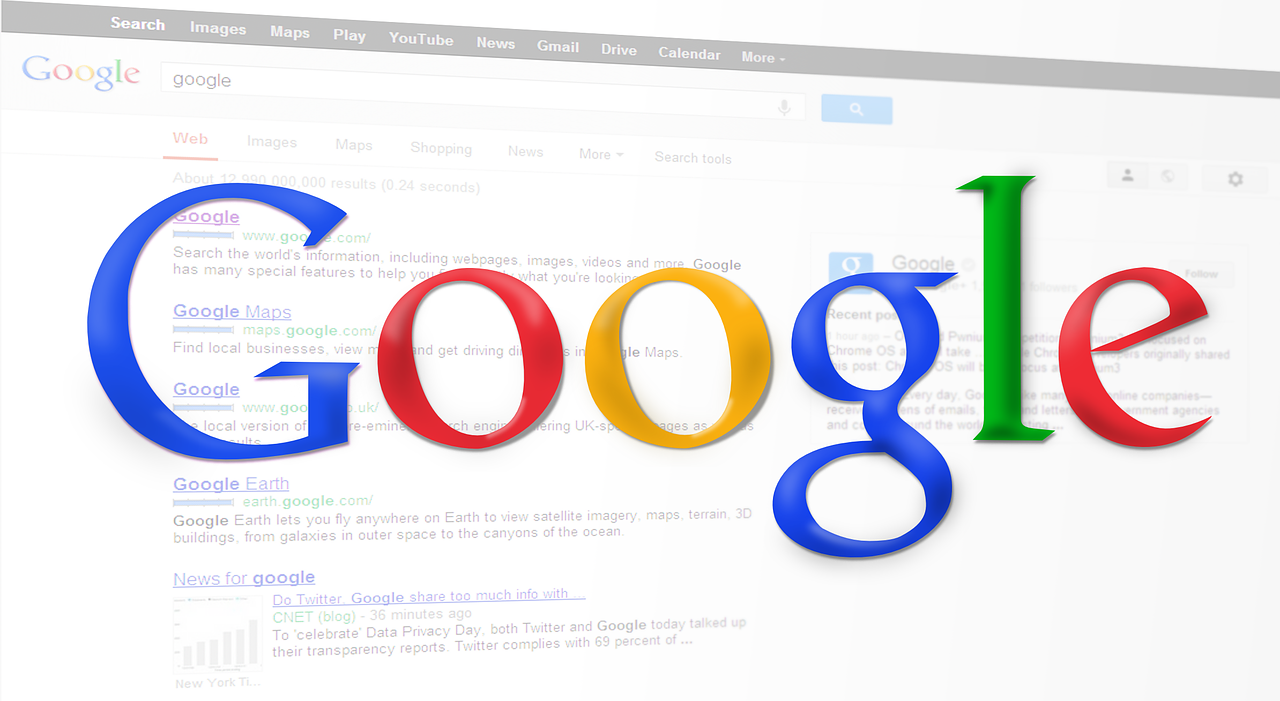
Google algorithm refers to Google’s process of surfacing and ranking content on SERPs. Google’s goal for its algorithm is to refine and update it periodically. To prepare Google for an algorithm update is to create high-quality content which is relevant to your audience. It’s important to update thin and duplicate content to make the algorithm amazing. Ensure your site is easy to understand or to navigate for the people. Also, make sure to know all the details about the latest Google Algorithm before performing Local SEO on your website.
Algorithms are complex systems used to retrieve data from its search index. These algorithms deliver the best possible result for a query. Google has a long history of algorithm updates designed to bring users information and content about which people are searching. The algorithm considers hundreds or thousands of ranking factors or signals. These algorithm updates generally seek to weed out the content. Google updates its algorithm regularly to improve its search results of queries.
Google has realized several core updates which aim to improve the overall quality of search results. It provides more relevant and useful information to the user.
The March 2018 core update's goal was to help pages "that were previously under-rewarded." The update was given the name "Brackets" by SEO influencer Glenn Gabe (after the term used during the concurrent March Madness basketball tournament).
The core update that took place in April 2018 was a routine update that did not generate much conversation within the SEO community.
Because it appeared to target medical sites, the core update in August 2018 was colloquially known as the Medic update. Especially those who did not follow Google's E-A-T (now with an extra "E") guidelines.
Google retroactively announced the September 2018 core update three weeks after it began rolling out. Google also confirmed that it would notify users of "noticeable" updates containing "actionable information that users may take."
In the Local Search Update for November 2019, neural matching was added. Neural matching is an artificial intelligence system that assists Google in comprehending the relationships between words and concepts.
Google was able to provide more relevant results in the Google map pack as a result of this update. It no longer relies on matching query words with company names or description keywords.
Danny Sullivan of Google confirmed on Twitter that featured snippet webpages will no longer be duplicated in standard Page 1 organic results. This modification affected 100% of all search results worldwide.
Release Date: 13 Jan 2020 Duration: 3 Days
Danny Sullivan, Google Search Liaison, announced via Twitter that Google would be releasing a significant core algorithm update. Approximately 90 minutes later, he announced that the update would take between one and two weeks to roll out of the update would take between one and two weeks.
Release Date: 04 May 2020 Duration: 14 Days
According to Google, the December 2020 Core Update will be implemented on December 3, 2020. This is the third time this year that the core algorithm has been updated. Since the last core update, a significant amount of time has passed compared to the average time between such updates.
Release Date: 03 Dec 2020 Duration: 13 Days
This was the first of two Core Updates that Google released in quick succession. Because some of the planned core updates were not ready in June, Google decided to release these updates separately.
Release Date: 02 June 2021 Duration: 10 Days
The health industry was the one that felt the most impact from the core update in November 2021. And increased the difficulty of almost every vertical compared to the last core update.
Release Date: 17 Nov 2021 Duration: 13 Days
The May 2022 core update followed several weeks of volatility in Google's search results. Many website owners have experienced significant fluctuations in their search engine rankings.
Release Date: 15 May 2022 Duration: 15 Days
This was the year's second core update, and it went live three days after the useful content update. It appeared to be less significant in general than previous core updates, including the May 2022 update.
Release Date: 12 Sept 2022 Duration: 14 Days
Google announced an update to its core algorithm, which began on March 15 and concluded on March 28.
Release Date: 15 Mar 2023 Duration: 13 Days & 7 Hours
The March 2023 core update was designed to make Google better at identifying quality content. Therefore, Google improves search results for users.
The April 2023 reviews update aims to reward reviews that share in-depth research rather than thin content that simply summarizes the bunch of products. It also provides services and other things to the user.
Release Date: 12 Apl 2023 Duration: 13 Days & 2 Hours
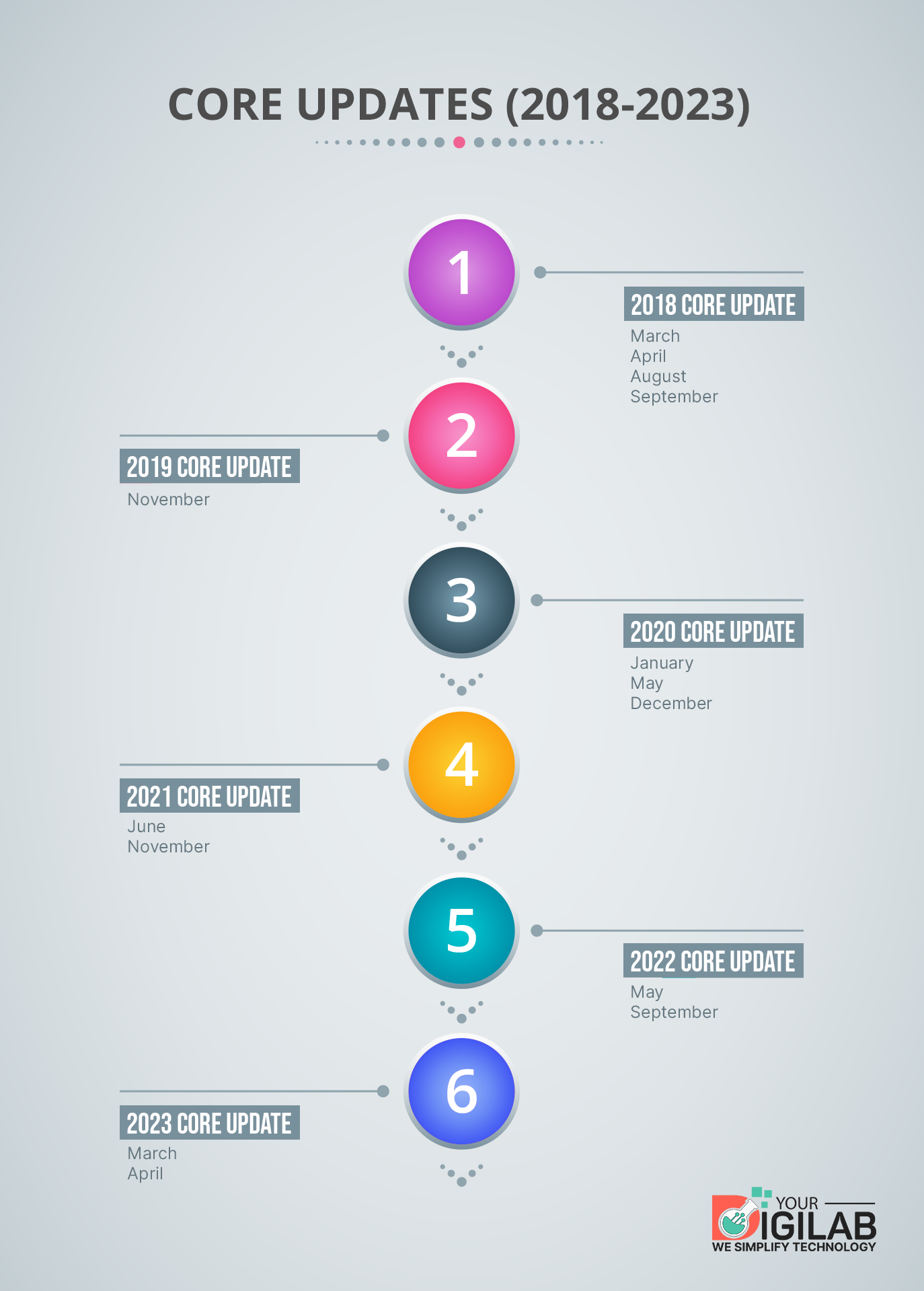
The April 2021 update to the product reviews was the first of its kind. According to Google, the intention was to reward expert product reviews "rather than thin content that simply summarizes several products."
Google announced via the Google Search Central Twitter account that the December 2021 Product Review Update has begun rolling out for English language pages and is expected to be completed within three weeks. They shared a link to a blog post about updates to product reviews and your website for more information.
Google stated that the third release of the product reviews update, which will take a "few weeks" to fully roll out, builds on the previous two releases' work. This update aims to help Google identify high-quality product reviews and rank them higher.
The product reviews update for July 2022 was designed to aid in the ranking of high-quality reviews. In addition, degrade low-quality product review pages that offer the reader little value.
The change to product reviews in September 2022 was meant to reward reviews that were thorough and of high quality. And it only worked for things written in English.
The February 2023 product reviews update aimed to reward in-depth. It provides high-quality product reviews. So, it affected sites that publish this type of content.
In April 2023, Google released a review update that affected reviews of "products, services, and things." The goal was to recognize original, well-researched product reviews that help consumers make purchasing decisions.
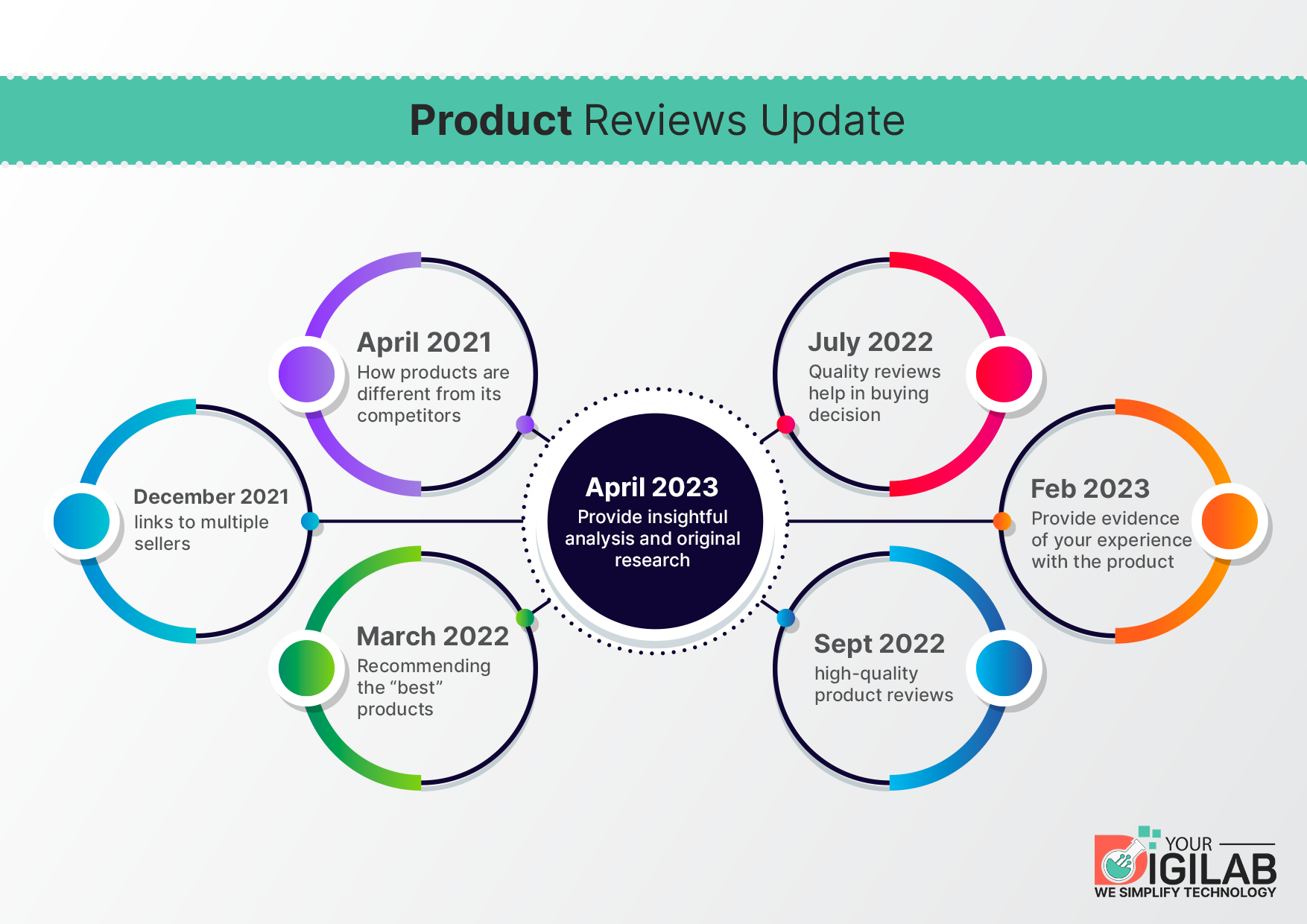
Google announced the beginning of the Helpful Content Update on August 25. On the Search Central blog, content creators can learn more about how to create content for people first.
This update added new signals to its classifier as well as updated the helpful content for all languages worldwide. Google estimates that the rollout will take up to two weeks.
Google's July 2021 link spam update made it "more effective at identifying and eliminating link spam across multiple languages."
According to a tweet from Google Search Liaison, a spam update was implemented between November 3 and November 11, 2021, as part of their ongoing efforts to improve search results. In their announcement, they suggested that webmasters continue to adhere to the Webmaster Guidelines.
Google's search spam detection systems have been updated with the most recent improvements. Google did not say whether this update targeted links, content, or other types of spam. This update had an impact on all languages worldwide.
The December 2022 link spam update enhanced Google's ability to identify websites that buy and sell links for SEO purposes. It was an improvement to Google's SpamBrain AI spam-detection system.
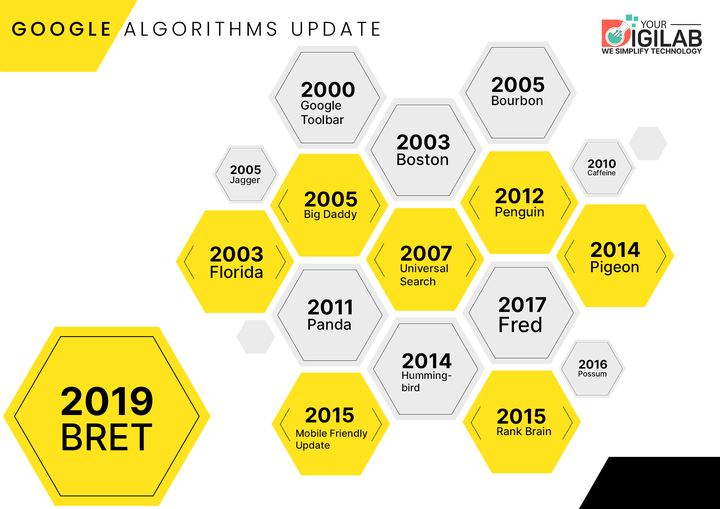
• Bert is a natural language processing algorithm that helps Google to understand better.
• The context and meaning of search queries provide more relevant results. BERT is a natural language processing (NLP) algorithm that allows Google to understand the nuances of search queries. As a result, the results will be more relevant.
• The BERT update improved Google's understanding of 10% of English-language queries in the United States. As a result, the results will be more relevant. Google returns a more useful result after BERT.
Announcement: October 25, 2019
Primary purpose of Fred update:
Announcement: March 8, 2017
Primary purpose of Possum update:
Announcement: September 1, 2016
The rank brain is a machine learning algorithm that helps Google better understand. The meaning behind search queries and provide relevant results. It's also known as the Google’s first AI system. It was helpful for:
Announcement: October 26, 2015
Google released a mobile-friendly update that boosted the ranking of mobile-friendly pages in mobile search results. The major update for this
Announcement: February 26, 2015
Announcement: December 22, 2014
Hummingbird update was focused on improving the understanding of users' search queries. It provides more relevant search results.
Announcement: September 26, 2013
The Penguin update was focused on reducing the ranking of websites. It was used as a spammy link-building technique.
Announcement: April 24, 2012
Announcement: February 24, 2011
The caffeine update was focused on improving the speed and freshness of Google’s search results.
Announcement: August 10, 2009
Announcement: May 1, 2007
Announcement: December 1, 2005
The Jagger update harmed sites that used cloaking, or hidden text and delayed redirects to show different content to Google and users. This update is bad for the websites:
Announcement: October 17, 2005
Announcement: May 1, 2005
Florida update was aimed at reducing the effectiveness of spamming techniques such as keyword stuffing and hidden text. It also improved search results and helped De-rank websites that have Black hat SEO
Announcement: November 16, 2003
• Boston update was all about improving the relevance of search results.
• In this update, Google placed greater importance on some factors which were anchor text and title tags.
Announcement: February 1, 2003
• In this update, the Google toolbar was introduced.
• This allowed the user to search Google directly from their web browser.
Announcement: Decemebr 1, 2001
After the page experience update, Core Web Vitals became a desktop ranking factor. This implied that the following metrics affected desktop rankings:
Largest Contentful Paint (LCP): The time required for the page's primary content to load.
First Input Delay (FID): The amount of time required to respond to the user's initial input.
Cumulative Layout Shift (CLS): is a metric that measures layout changes that occur during loading.
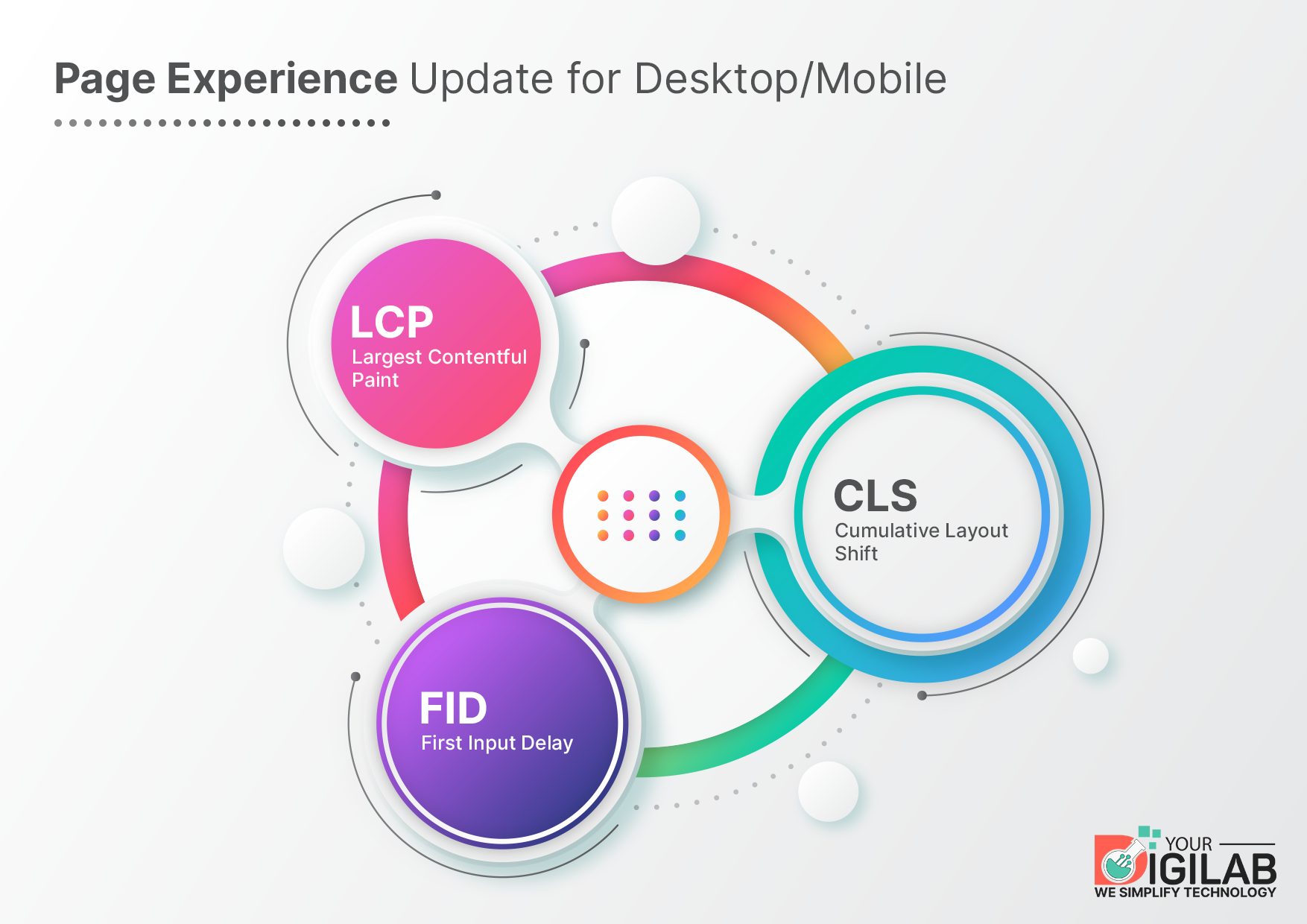
Core Web Vitals became a ranking factor for mobile devices after the mobile page experience update. As a result, the following metrics influenced mobile rankings:
Largest Contentful Paint (LCP): The time it takes for the page's primary content to appear.
First Input Delay (FID): The time it takes for the page's primary content to appear the time it takes to receive a user's input. The amount of time it takes to respond to the user's first interaction.
Cumulative Layout Shift (CLS): The number of layout shifts that occur during loading.
Websites need to stay current with Google’s algorithm updates. Google maintains its search rankings and provides the best possible experience for users. Day by day Google is pushing best practices and rewards websites. It provides high-quality and relevant content. Google's algorithm addresses the needs and interests of the target audience.
Incorporates keywords and phrases relevant to the industry. Update your website with fresh and informative content. While updating the algorithm make sure your website is mobile friendly. It is important to implement website security by using HTTPS. To prioritize securing your sites and protect your website data from hackers.
Google update changes how Google’s algorithm works, causing it to weigh website factors and signals differently by affecting a site. This site is ranking on SERPs. The goal of each update is to provide searchers with the most helpful and relevant answers to the query. By providing strong content to your audience, you can prepare yourself for any Google update. The purpose of updates is the same as the goal of the algorithm itself. To populate high-quality content to the user that answers their questions and provides the best possible search for users. The aim of updating Google’s algorithm is to create the best and fastest search experience possible.
It is important to create high-quality contents that are relevant to the people. Make sure that your site is easy to navigate or understand. Perform technical check-ups. For Google algorithm update work on improving the site speed. Make sure your site is using HTTP (hypertext transfer protocols).
Broad core Google’s algorithm updates happen when Google implements wide-ranging changes to Google’s algorithm changes. These update signals make a broad change in how Google’s algorithm ranks pages and sites.
To stay up to date with Google’s algorithm update is to use Google alerts and other third-party tools. Create high-quality content of Google’s algorithm. While updating your SEO strategy, even the smallest changes can result in a significant impact. Make changes only at the time. Google algorithm updates follow twitters hashtags.
It can take less than a day and up to four weeks for Google’s algorithm to be indexed. How long it takes for your website to be indexed is based on your site’s popularity and structure. Keep checking the status of your sitemap in Google’s search.
John Fernandes is content writer at YourDigiLab, An expert in producing engaging and informative research-based articles and blog posts. His passion to disseminate fruitful information fuels his passion for writing.